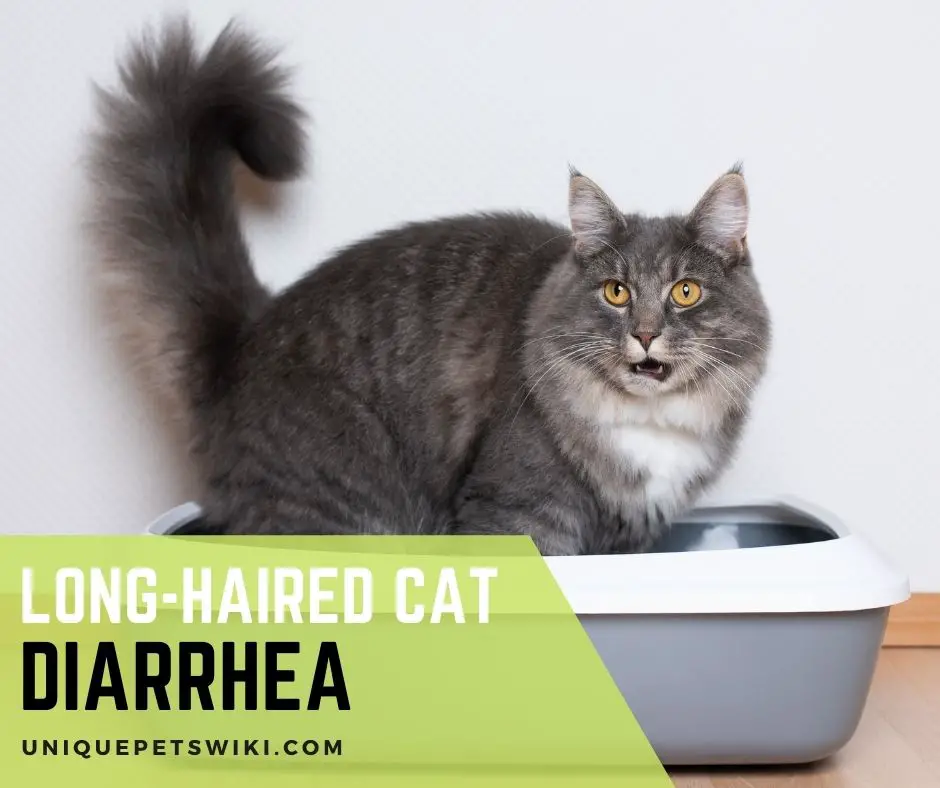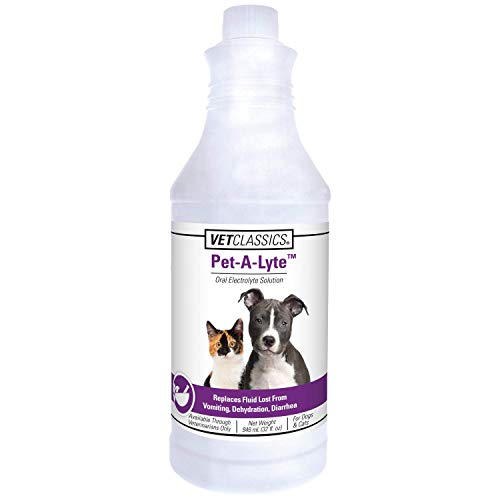Diarrhea is a common condition that affects pet cats. It is characterized by the presence of loose stool, usually with increased amount and frequency and often containing mucus and blood.
Long-haired cats are more prone to this condition because their fur can accumulate around the anus or in the rectum.
When this happens, it makes defecation difficult and painful for the affected cats, causing them to strain when passing stool.
Cat owners who experience this condition are mostly worried about the health condition of their cats. Especially, if the affected cat loses a great deal of weight.
Interestingly, diarrhea in long-haired cats isn’t a disease in itself, rather, a clinical sign that tells that the health condition of the affected cat is at stake.
Mostly, it involves some degree of inflammation of one or more areas of the gastrointestinal tract.
This article seeks to explain the causes of long-haired cat diarrhea, how to treat it and how to prevent your cat from having diarrhea. Keep reading!
Contents
How Can You Tell If Your Long-Haired Cat Has Diarrhea?
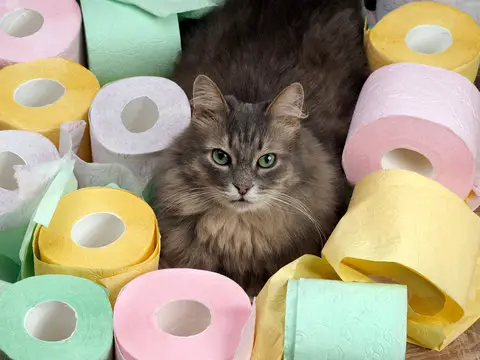
It’s easy to tell if your long-haired cat has diarrhea given that you know what diarrhea is. As a cat owner, one of the things you should care about is what their poop looks like.
A cat’s poop indicates whether or not they are in good health.
Hence, you should take it seriously if you notice something that doesn’t look normal or if you notice a routine that doesn’t look normal such as frequent watery stooling.
Your cat has diarrhea if it frequently passes loose or unformed bowel movements two or more times in a day.
Thus, diarrhea is unformed or watery bowel movements, usually with increased frequency and amount.
Diarrhea in itself isn’t a disease but a sign of several diseases that may be affecting the cat. Diarrhea is one of the most common health conditions in pet cats, especially in long-haired cats.
Long-haired cats are more prone to diarrhea than short-haired cats because of their fur that is likely to accumulate around their anus and make defecating painful.
Diarrhea is of two types. There is acute diarrhea and chronic diarrhea.
Acute diarrhea occurs over a short period and most times, cat owners wouldn’t even notice that their cats have diarrhea because acute diarrhea is self-eliminating and often a result of eating something the cat shouldn’t or a minor infection.
Chronic diarrhea on the flip side lasts longer for up to three weeks or sometimes it happens intermittently (that is, it comes and goes, off and on).
Acute long-haired cat diarrhea that lasts a few days doesn’t affect the health of the affected cat.
However, chronic diarrhea should be treated medically as soon as possible because if left untreated can lead to dehydration and drastic weight loss.
Symptom of Long-Haired Cat Diarrhea
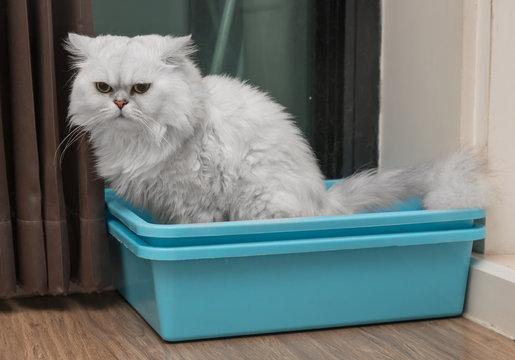
As stated earlier, you can learn a lot about your cat’s health from its poop. It doesn’t matter whether you are a new cat owner or an experienced owner, a healthy cat poops at least once a day.
A healthy cat poop has the following qualities:
- It’s light/deep brown, and sometimes it may carry the color of the food you feed it.
- It feels like paste, not too hard or too soft or mushy.
- It has a mild smell. Although a cat’s poop wouldn’t smell like roses, a healthy cat’s poop wouldn’t smell too foul.
On the flip side, depending on the causes, symptoms of diarrhea include:
- Black, tarry, runny poop (often caused by intestine or stomach bleeding).
- Smelly, pudding-like poop (caused by food allergies and/or inflammatory bowel disease).
- Gooey poop filled with mucus (caused by too little fiber in the cat’s diet or colitis).
- Soft, frothy, greasy poop with mucus and/or blood (parasites, intestine, or stomach bleeding).
Causes Of Long-Haired Cat Diarrhea
Long-haired cat diarrhea that lasts for 24 – 48 hours is unlikely to be an issue except that your cat is a kitten or an older cat.
In cases of chronic diarrhea that lasts for weeks or even months, medical attention should be sought immediately to avoid dehydration, weight loss, or even death.
There are several possible causes of diarrhea in long-haired cats. These include:
- Food allergies or intolerance to certain ingredients in their diet can cause diarrhea in long-haired cats.
- Changes in their diet: When you feed a particular food to your cat for a long time, any adjustments to their diets in the future can cause a side effect such as diarrhea. This is because the new food or an ingredient in the food which tastes strange to your cat can alter the intestinal environment and trigger diarrhea.
- Pancreatic disease (pancreatitis): The pancreas is an organ that is located on the right side of the abdomen, adjacent to the stomach which is responsible for producing enzymes that help in food digestion.
Hence, pancreatic disease occurs when the pancreas becomes inflamed. When this happens, it usually affects or causes inflammation in other organs such as the intestine and liver.
This multi-organ inflammation is known as “triaditis” and one of its symptoms is diarrhea.
- Intestinal parasites such as worms
- Colitis or Inflammatory bowel disease: This has to do with the inflammation of one or more areas of the gastrointestinal tract (that is, the colon or large intestine). In most cases of chronic diarrhea, colitis is likely the cause.
- Hyperthyroidism: Another cause of diarrhea in cats is hyperthyroidism. This is a condition or disease where the thyroid hormone is overproduced by the thyroid glands.
This disease mostly affects cats of about 13yrs of age. This hormone is meant to regulate metabolism in cats, hence, when it’s produced in excess can cause the system to malfunction.
Vet Classics Pet-A-Lyte Oral Electrolyte Solution for Dogs and Cats – Helps Replace Fluids Lost From Pet Dehydration, Diarrhea
- ELECTROLYTE SOLUTION FOR CATS AND DOGS: When your pets are faced with dehydration, vomiting or diarrhea, it’s important to replace the lost fluids quickly with Vet Classics Pet-A-Lyte Oral Electrolyte Solution for dogs and cats. This great-tasting liquid electrolyte solution comes in a 32 Oz. bottle and helps to help replace your pet’s fluids.
- PREMIUM DOG ELECTROLYTE SOLUTION FOR VOMITING: Give your furry friend the support he needs after vomiting with this Pet-A-Lyte oral electrolyte solution for dogs and cats that helps to maintain normal fluid balance in the blood and tissues.
- CAT SUPPLEMENT FOR DIARRHEA: Your pet’s vitality is important at any age, which is why it’s crucial to replenish fluids lost from cat diarrhea or dog diarrhea. This 32 Oz. dog supplement for dehydration replenishes essential electrolytes.
- VETERINARIAN FORMULATED DOG ORAL ELECTROLYTE SOLUTION: Support your pet and replenish lost fluids after dog vomiting, cat diarrhea or pet dehydration with Pet-A-Lyte electrolytes that replaces lost fluids.
- PREMIUM PET SUPPLEMENTS: Since 1994, Vet Classics has offered a high-quality line of pet health supplements developed by veterinarians and staff scientists for dogs, cats and horses. Vet Classics offers preventative and solution based supplements for hip and joint support, cardiovascular care, liver support, urinary support, digestive support, and more.
Last update on 2022-12-30 / Affiliate links / Images from Amazon Product Advertising API
How Are Diarrhea Diagnosed?
You will notice that your cat has diarrhea from the frequency and consistency of its poop. What you will not be able to do is to tell what causes the frequent watery stooling.
At this point, you should not wait for more than one week before taking your cat to see a vet.
To determine the actual cause of your cat’s diarrhea, a physical and clinical examination of its poop must be conducted by your vet.
Hence, you’re expected to provide the vet with a detailed medical or health history of your cat. You should give your vet a chronological sequence of what happened, when and how the changes started.
Always be as specific as possible about the date you first noticed a problem and how it progressed.
If there was a change in your cat’s diet recently, you should also state it clearly to your vet. Communicate also to your vet any change in your cat’s normal routine.
Your vet will ask you questions such as how frequent are the stools? What color, consistency, and odor does the feces have?
Is the cat exhibiting any other signs such as vomiting, lack of appetite, lethargy, or weight loss?
All these details and information are to provide the vet an insight into what could cause diarrhea. Typically, several fecal and blood tests will be conducted before treatment is administered.
However, if the first treatment fails, an in-depth diagnostic test will be conducted.
This will include stool and rectal swab samples for parasite examination, blood work, x-rays, culture, DNA testing, and endoscope exams.
Diarrhea In The Long Haired Cat’s Fur
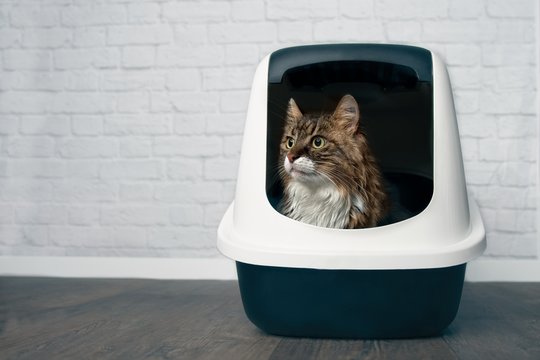
Diarrhea in cats is a common health condition. However, in long-haired cats, because of their fur, diarrhea, especially when prolonged, usually leads to some other health-threatening issues such as a fecal mat.
Aside from being unsanitary, what should you know about the fecal mat and how can you prevent it in your long-haired cat? Read on to find out!
Fecal Mat
Fecal mat occurs when some fecal matter/droppings get stuck in the fur around the anus. It occurs mostly in long-haired cats than in short-haired cats.
The reason is that since long-haired cats have lots of fur on their skin and around the anus, fecal droppings tend to stick to the fur and accumulate around the anus.
When this happens, pooping becomes difficult or painful to the cat as the matted fur can block the anus.
What you can do as the owner is to bathe off the fecal mat and clean your cat. Regular grooming can help prevent fecal mat in long-haired cats.
Moreover, an untreated fecal mat can lead to several other complications such as scooting on the floor and/or straining when defecating.
Maggot or fly infestations, infections, and skin irritation can also occur if a fecal mat is left untreated.
How To Clean Poop Out Of A Long Hair Cat’s Fur
You just read that leaving a fecal mat uncleaned or untreated, especially in long-haired cats can cause severe health issues to the affected cat.
Hence, Cleaning poop out of your long-haired cat should not be taken lightly.
It’ll not only make your pet feel good but will also help prevent further health complications such as constipation.
Therefore, how do you clean poop out of your long-haired cat’s fur without sustaining injuries? This section will walk you through the process step by step.
- Wipe away any fresh or hanging poop from your cat’s bum with wet wipes designed for cats or wet clothes.
- If the feces are dry, remove the fecal ball by brushing the area around the anus. You can trim any dry, clinging feces from the fur with scissors. Ensure that the scissor isn’t too close to the skin to avoid injury.
- If these methods prove abortive, spot clean minor fecal staining with warm water. Moisten the area with warm water or let the cat sit in warm water for a while so you can wipe it off with wipes or clothes.
- Also, if the aforementioned methods don’t work, you should wash/bathe the cat in warm water with cat shampoo and ensure the cat is properly dried afterward.
How To Treatment of Fecal Mat in Cats
Two notable causes of fecal mat in cats are diarrhea and the cat’s hair around the anus. Understanding this would help you to know what to do when your cat has a fecal mat.
Therefore, the first thing you should do is to remove the matted hair by washing off the feces, brushing, or cutting off the affected (matted) hair.
Once this is done, further treatment should depend on whether there were any complications or injuries caused by the matted fur.
If there was a case of parasite or bacterial infection, oral medication can be administered.
If loss of electrolyte or dehydration was detected, the cat would need to be injected with some IV fluids. This will help strengthen the cat.
How To Prevent Poop From Sticking On Your Long-Haired Cat’s Fur
From our discussion, long-haired cats are more prone to fecal mat or sticking poops on their fur around the anus than short-haired cats.
This is because of their long hair and sometimes as a result of ungroomed fur. To prevent this from occurring, ensure you do the following:
- Regularly groom or brush your long-haired cat to get rid of excess fur.
- Using scissors, trim out matted hair, especially around the anus.
- If you notice some sticking poops around its anus after defecating, ensure you wipe it off with wet wipes or wet clothes.
- Finally, have a routine of bathing your cat in warm water with cat shampoo to keep its fur clean.
Under the Weather Anti-Diarrhea Liquid Medication for Dogs and Cats
- POWERFUL ACTIVE INGREDIENTS - Tummy troubles are no match for Kaolin and Pectin, which help reduce gas and diarrhea by absorbing bacteria and toxins from the intestinal tract. Helps alleviate discomfort, irritation and cramping associated with diarrhea in your cats.
- VET FORMULATED - Our vet formulated Anti-Diarrhea Liquid for cats helps to quickly firm stools and soothe your cat's upset stomach.
- EASY INSTRUCTIONS - Shake well before using and simply mix into your pet's food every 12 hours or as recommended by a veterinarian. Consult a veterinarian for use of this product on pets less than 5 pounds. Individual results may vary.
- SAFE AND EFFECTIVE - Our anti-diarrhea liquid makes sure that your cat is getting the best care while feeling “under the weather”.
- MADE IN THE USA - Under the Weather Premium Pet Wellness products contain guaranteed natural ingredients without artificial flavors or dyes. Proudly manufactured in the USA.
Last update on 2022-12-30 / Affiliate links / Images from Amazon Product Advertising API
How Long Does It Take To Treat Diarrhea In Long-Haired Cats?
As stated earlier, acute or mild diarrhea can resolve itself within a few hours or days even without treatment. Chronic diarrhea on the other hand will resolve within a week of treatment.
If it lasts longer than this, a thorough examination by an experienced vet should be done. Cat diarrhea if left untreated will lead to weight loss, dehydration, lethargy, and even death.
Home Treatments
For acute or mild diarrhea, which is often a result of dietary indiscretion or food intolerance, administer the following home remedy solutions:
- Stop Giving Food For About 24 Hours: Giving your affected cat a break between meals will give its digestive system some time to heal. However, ensure you provide lots of clean water to drink as it’ll need to drink more when it has diarrhea.
Also, if your cat is a kitten, do not follow this recommendation. Kittens need some food to stay strong during diarrhea.
- Offer Bland Food: After giving a break in your cat’s digestive system, introduce some homemade foods such as boiled white rice and steamed white meat such as chicken and fish in small quantities. Avoid foods that are rich in fat during this period.
- Use Probiotics or some natural yogurt as a substitute if you can’t get your hands on probiotics.
- Use electrolyte solutions for a severe case of diarrhea. If diarrhea has persisted such that it causes electrolyte imbalances, you’ll need to see a vet. However, why making preparations to see a vet, you can add a small amount of salt-free meat broth to your cat’s water for it to drink.
That notwithstanding, where your cat doesn’t show signs of improvement within a few hours, days, or a week of treatment, take your cat to see a vet.
When Does Your Long-Haired Cat Need Veterinary Care?
A chronic case of cat diarrhea needs a veterinarian examination. Also, if diarrhea persists in your cat for up to a week after giving home treatments, you’ll need to take your pet to a vet.
How To Prevent Diarrhea
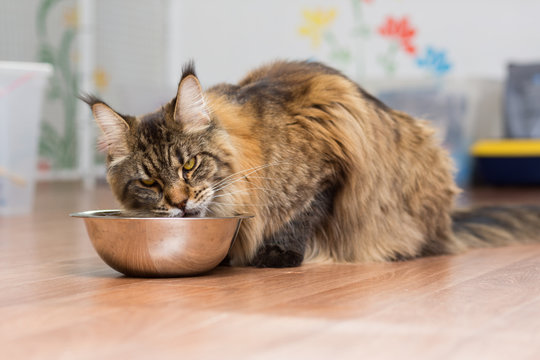
Preventive measures to cope with long-haired cat diarrhea are the best way of treating diarrhea in cats.
Since several factors such as diet change, poor hygiene, bacterial and fungal infections, etc. are the culprits of cat diarrhea, ensuring that these factors are eliminated or minimized to the lowest degree possible will prevent long-haired cat diarrhea.
To prevent diarrhea in long-haired cats, adhere to the following:
- Offer low in fiber foods. Foods that are low in fiber are easy to digest and are less likely to erupt stomach upset.
- Encourage your cat to consume lots of water and electrolyte.
- Groom and brush your long-haired cat regularly.
- When necessary, give your cat a quick bath in warm water.
In Conclusion
While it is common for long-haired cats to occasionally have diarrhea, it is not something that you should ignore. Diarrhea can be caused by many different things, including:
* Bacterial infections
* Parasites
* Food allergies
* Intestinal inflammation
* Cancer
* Intestinal blockages
* Intestinal worms
* Stress
* Medications
* Infections
* Diseases
Diarrhea can be a sign that your cat is ill, it can be a sign that there’s an infection in the digestive tract.
It’s important to isolate your cat from other cats, as diarrhea can spread easily. If your cat has diarrhea, contact your veterinarian right away.
Check out our other articles about Long-haired cat:
